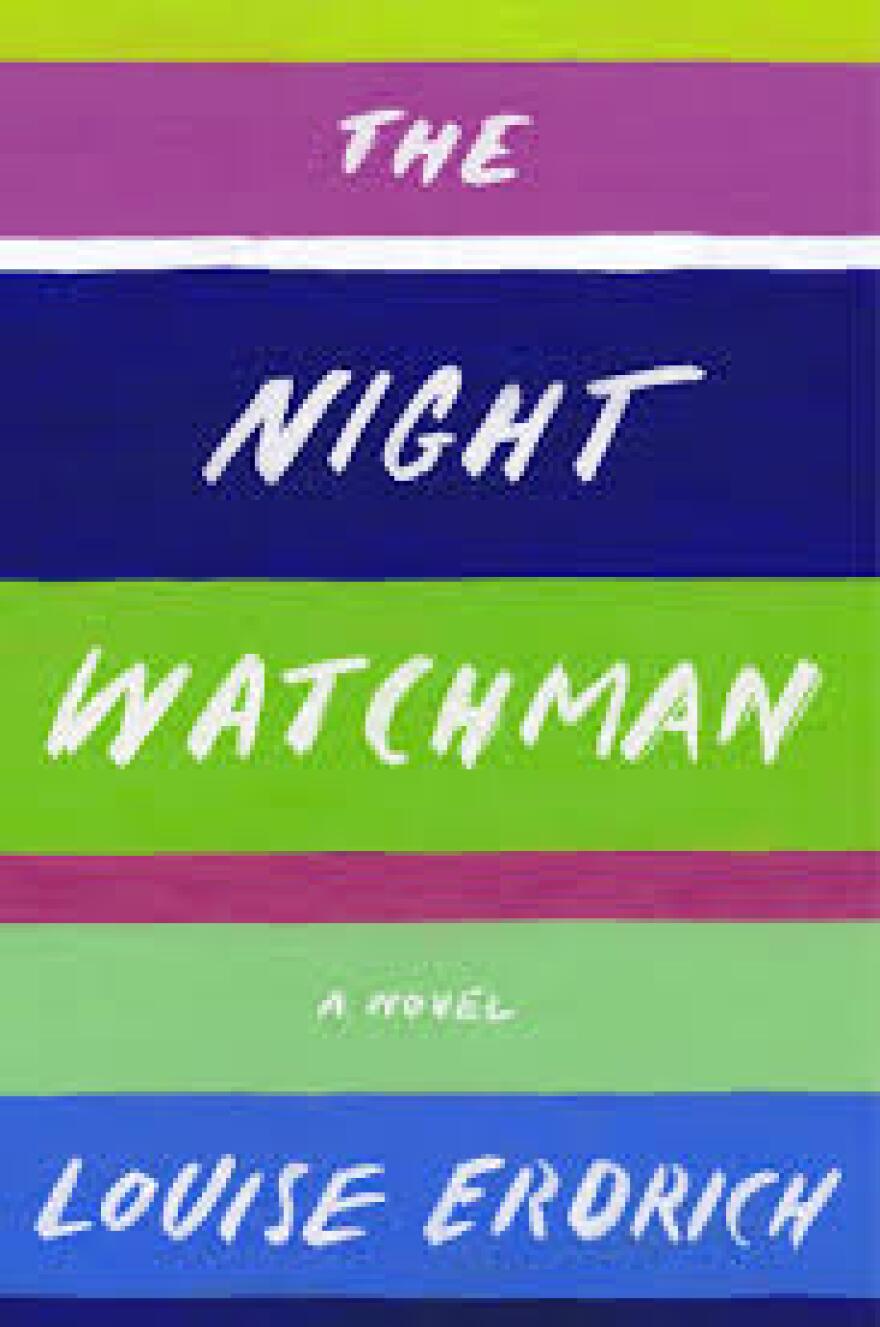Louise Erdrich is well-known for her many books, including Love Medicine, the 1984 National Book Critics Circle Award-winning book. This and later works focus on the theme of justice and the ways in which Native Americans struggle to obtain it. She has always written about the Native American community she learned about in her childhood, and her early works document those lives of Native Americans. But with her latest work, The Night Watchman, she has based the character of protagonist Thomas Wazhashk on an actual member of her family.
In her new novel, The Night Watchman, Louise Erdirch’s protagonist, Thomas, keeps watch in a factory while he also tends to the affairs of the Turtle Mountain Band of the Chippewa people — as their tribal chair. This character is based on Erdrich’s maternal grandfather. In the 1950s, he held that overnight job while also having to tussle with the U.S. senator who was trying to terminate the tribe, moving the members off the land that was reserved for them.
We also, here, follow 19-year-old Patrice, a smart young woman who is determined to find out what happened to her sister who’s gone missing.
Thomas and Patrice live in this impoverished reservation community along with young Chippewa boxer Wood Mountain and his mother Juggie Blue, her niece and Patrice’s best friend Valentine, and Stack Barnes, the white high school math teacher and boxing coach who is hopelessly in love with Patrice.

We also, here, follow 19-year-old Patrice, a smart young woman who is determined to find out what happened to her sister who’s gone missing.
Thomas and Patrice live in this impoverished reservation community along with young Chippewa boxer Wood Mountain and his mother Juggie Blue, her niece and Patrice’s best friend Valentine, and Stack Barnes, the white high school math teacher and boxing coach who is hopelessly in love with Patrice.
Highlights of the Interview with Louise Erdrich
On the character of Patrice
Patrice is actually my grandfather's name. So I gave it to her. And we have a lot of Patrices in our family who are named after my grandfather, but he went by Patrick. It was just more… you know, he could go by either one. She. Where did she come from? That, I do not know. I started after I wrote a little bit about Thomas. It was as though I was watching my hand move on the page, and then I got to this line. She did things perfectly when enraged and I thought, ah, I got it. I've got her, I know her. I couldn't stop writing her.
On the depiction of the factory work in the novel
I don't think that this kind of work is acknowledged or really known about when people think of reservations. People don't think about there being this kind of work, but this was a very, this was a very real situation. And I did my best to talk to people whose mothers had worked at the plant and who carpooled to the plant. I mean, some of the things I would write, I would find out later that I'd guess properly, you know, that there were these women's groups carpooling to the jewel bearing plant. And I wanted to write about it in as much detail as I could, because it isn't something that's generally thought of when people think about a reservation. There aren't people going back and forth to work at a factory. But that is how it was and how it still is.
On not reading certain aspects of the book as examples of magic realism
I can't say what I want people to actually take away, but I'll just say what was perhaps magical to other people to me is not out of the ordinary. I guess I live in a way that I—not only I, but family, friends, or people around me—are very susceptible to dream a dream life, a life that takes in the possibility of the unknown. So this, to me, isn't something magical, but very close to things that people have described to me or that I've experienced. I think that we don't admit to, or we don't often grow up to understand and take in our dream life as pertaining to truth as well. So when I have characters who see things or feel things, or even move between experiences of the world, that may be thought of as not magical, I don't know what another word is, but they, they aren't, they aren't… they seem very much of a piece to me that these worlds aren't in collision. They just move like waves between the two or maybe many other worlds.
TPR was founded by and is supported by our community. If you value our commitment to the highest standards of responsible journalism and are able to do so, please consider making your gift of support today.



